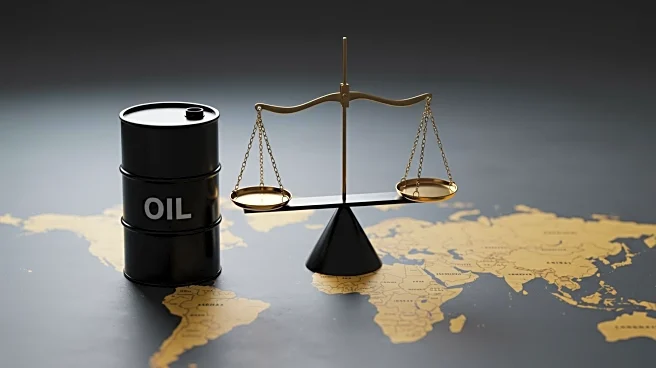What is the story about?
What's Happening?
Indian Oil Corp has secured another cargo of U.S. West Texas Intermediate crude for delivery in October, according to industry sources. This purchase follows President Trump's threat to impose additional tariffs on Indian exports to the U.S. if India continues to buy Russian crude. The deal was priced at a premium of $2.80 to $2.90 to dated Brent. India has been increasing its Russian oil purchases due to favorable pricing, making Russia one of its top suppliers. Despite U.S. threats, India has continued to import Russian oil, with recent reports indicating a pivot to U.S. oil and other regions. Indian Oil Corp recently acquired 2 million barrels of U.S. Mars crude, along with Brazilian and Libyan oil, and 8 million barrels from various global sellers.
Why It's Important?
The purchase of U.S. crude by Indian Oil Corp highlights the geopolitical tensions affecting global oil trade. President Trump's tariff threats aim to reduce India's reliance on Russian oil, which has become a significant supplier due to competitive pricing. This situation underscores the complex dynamics of international trade and energy security, as countries navigate political pressures and economic interests. The shift in India's oil sourcing could impact global oil prices and trade patterns, influencing the strategies of other oil-importing nations. Additionally, the potential $20 billion increase in India's oil import bill, if Russian oil is shunned, poses economic challenges for the country.
What's Next?
India's response to President Trump's tariff threats and its ongoing oil import strategy will be closely watched by global markets. The potential for increased tariffs could lead to diplomatic negotiations or adjustments in trade policies. Indian Oil Corp's continued diversification of oil sources may mitigate risks associated with geopolitical tensions. The broader implications for U.S.-India trade relations and energy cooperation will depend on how both countries address these challenges. Stakeholders in the oil industry, including producers and exporters, will need to adapt to shifting trade dynamics and potential regulatory changes.















